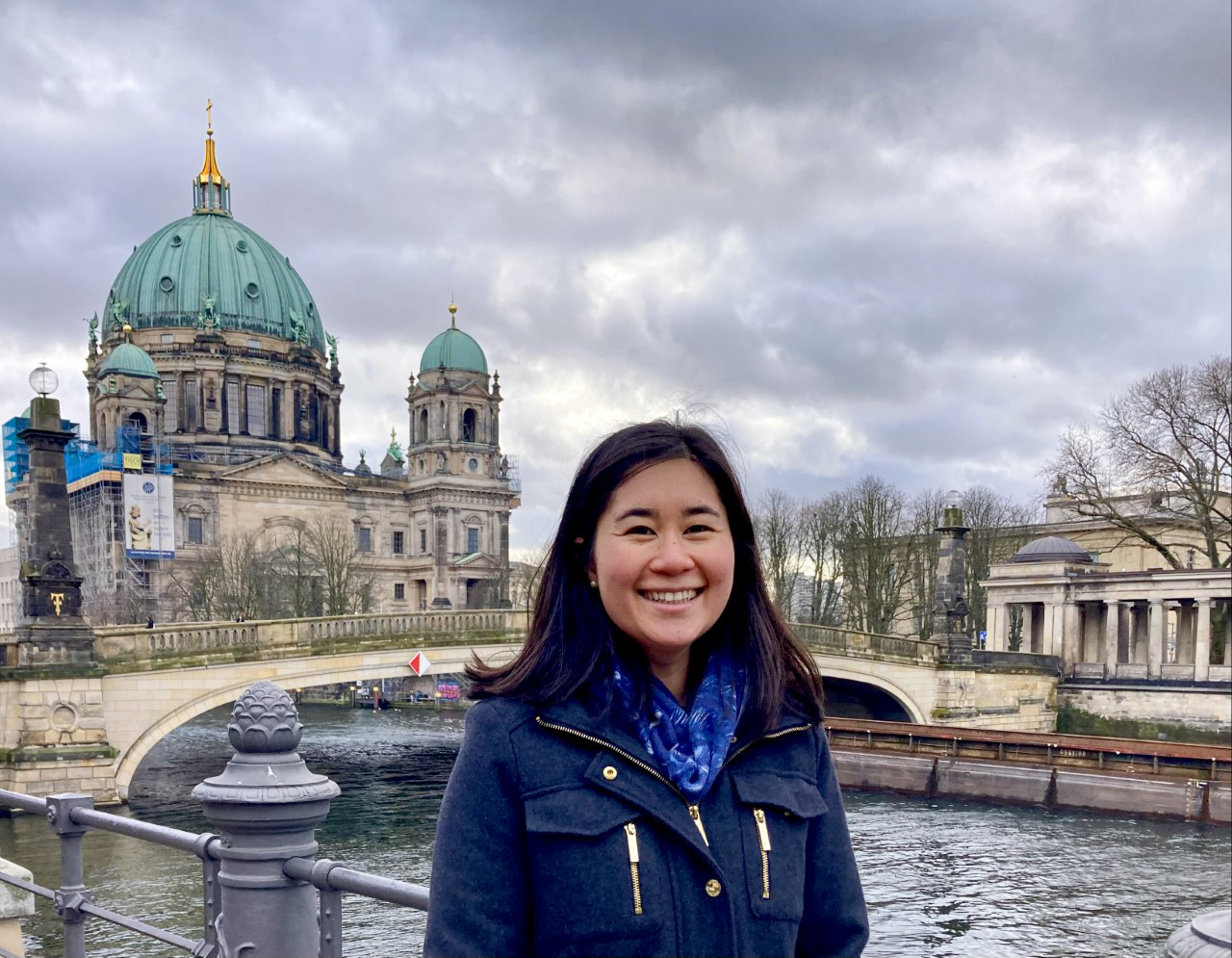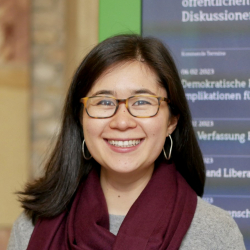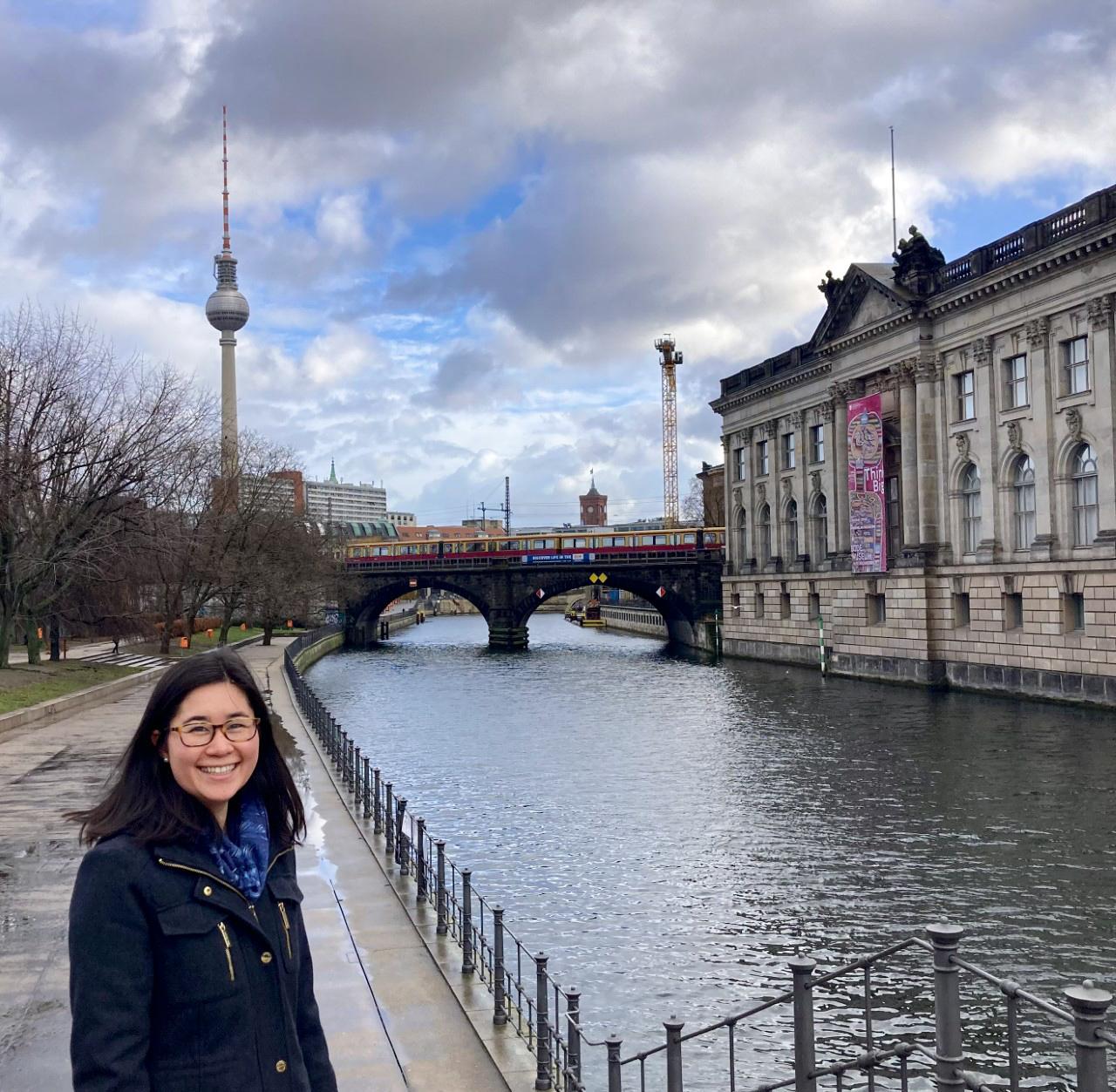
Sonia Giebel
What drew you to study education?
Prior to graduate studies, I worked in selective college admissions. When I applied to college myself, I found the process simultaneously vexing, infuriating, and fascinating. I became interested in better understanding academic evaluation and selection, as well as the social stratification and inequality that follows. Working in admissions afforded many important insights, but also raised a lot of new questions -- ones I didn't feel could be answered by staying in the field and were better suited to exploration in a PhD program.
What research are you pursuing at Stanford? What is your dissertation work or plans?
My dissertation explored how students and U.S. colleges together produce racial and gender identities and enact cultural ideas like diversity and meritocracy. In particular, I investigated how students with identities that challenge commonly accepted cultural mores or categories -- like multiracial-identifying students or women choosing to pursue STEM disciplines -- made sense of and performed these identities throughout their time in the American higher education system, from the admissions process to on-campus life. Across my three dissertation papers, I used qualitative, quantitative, and computational methods, and drew on interviews with college applicants and undergraduate students, as well as a large corpus of undergraduate applications.
How would you describe the other doctoral students in your program?
Intelligent and accomplished, but without the ego. My cohort-mates all bring such exciting and provocative ideas to the fore, and I feel lucky to collaborate with and learn from them, but I feel equally lucky that they're kind, generous people who are easy to befriend.
Are there any particular highlights of your time at Stanford?
My time contributing to the Student Narratives Lab, co-led by professors anthony lising antonio, Mitchell Stevens, and Ben Domingue, helped me to develop my sense of self as a scholar. We worked with a huge corpus of undergraduate applications to the University of California system, and the scholarship we produced managed to reach both academic and public audiences, which was really exciting to see. My colleague AJ Alvero (now a professor at the University of Florida) and I were even interviewed (live!) on the local San Francisco news channel!
What do you do to relax and have fun?
I'm a big foodie, so I love trying out restaurants and new recipes, and I cook and bake regularly. I'm also a sports fan, and I'm very serious about my allegiances. I root for the German national soccer team; the last two men’s World Cups were very depressing, but I have high hopes for and am attending the women’s World Cup in Australia this year [2023]. More locally, Stanford women’s basketball and volleyball games are always really fun, and I tried to catch as many soccer games as I could, too.

What are your career plans?
I am currently a postdoctoral research fellow at the WZB Berlin Social Science Center, where I’m investigating the multiple meanings of diversity in higher education across different national and political contexts. After my postdoc, I am hoping to pursue a career as professor, working across the fields of sociology of education, race and ethnicity, gender, and organizational studies.
What impact do you hope your work will have?
I hope my work will speak to other scholars in my subfields, but perhaps even more importantly, I hope those navigating the U.S. higher education system will find my scholarship relevant and helpful. Almost no other country organizes higher education in the way the U.S. does; I hope my work makes some sense of this complicated, strange, but altogether fascinating system.
What advice do you have for prospective students on the application process?
Be earnest about your passions and specific about why/how you hope to pursue them during graduate studies in your personal statement, but also recognize that you're not signing a contract set in stone. Your research interests likely will (and probably even should) evolve and expand in graduate school, so it’s okay if you don’t have everything plotted out in exact detail. The application process can be intimidating, but know that professors are also extremely busy, so if you reach out to a prospective advisor and don't immediately hear back, do not take it personally.
Looking back, what would you like to have told yourself on the first day of your PhD?
I remember feeling so overwhelmed on my first day as I learned about qualifying papers and dissertation proposals, and the idea of a five-year graduate program felt like it would be an eternity. It won’t be! Take it one step at a time, be that one course or idea at a time, and you’ll gain momentum and find your way. Before you know it, you'll be scheduling your dissertation defense! Also, lean on your peers. It’s easy to be intimidated by others at the GSE – they are accomplished and impressive people! But even if it appears as if everyone has everything figured out, everyone is really learning together.

Photos courtesy of Sonia Giebel
